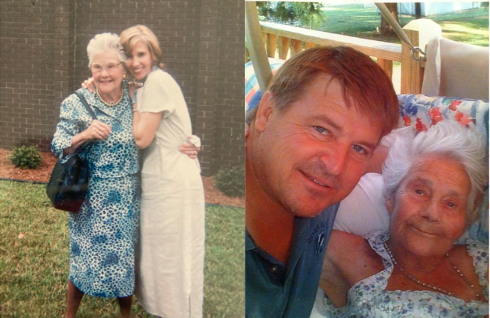Back to Basics and Re-set
This blog title is credited to a member of the Board of Directors for the National Association of Health Care Assistants (NAHCA). I was enlightened after attending a symposium entitled, "The New CNA Workforce: Frontline Lessons from the Pandemic" given by NAHCA.
Career CNA board members and thought leaders shared their passionate pleas for significant change. It really was quite moving, and frankly, sad. Sad in the sense that they felt compelled to give everyone a piece of their mind about how, for decades, they have been treated by their superiors and organizational leadership.
A stern warning was delivered, "We will not tolerate these conditions much longer", and seriously, who can blame them.
Lori Porter, Co-founder and CEO of NAHCA shared this startling reality- there are 425,000 fewer nursing home workers today than before the pandemic, and if serious change doesn't ensue immediately, this number will grow exponentially.
Why must change be driven through threats? The answer is because nothing else seems to have worked.
Don't think that it is only about the pay. Yes, nursing assistants need, and deserve to make much more than they do, but what they also need is to be a valued and respected member of the team.
I reeled hearing one CNA board member describe how in the middle of rendering care to one resident, a nurse knocked on the door to say that there are two more call lights going off and could she please hurry up. Seriously? This unacceptable and disrespectful to the nursing assistant, and the care receiver.
Wake up to Change
Change in this realm will include everything from a long-term national strategy to reform the long term care system to immediate, organization-specific actions. But, one CNA board member laid it out, "We need to get back to the basics, and re-set." My ears perked up, because this exact phrase has been our mantra at AGE-u-cate for months.
We simply must take care of the caregivers, so that they can give their best to their care receivers. The basics include respect, dignity, and appreciation for all. When we get back to the basics, we can begin to rebuild a healthy organizational culture.
It will be up to leaders to work in tandem with all employees create the path to a healthy culture. Listen to what your staff have to say- you may be surprised how much thought they are giving to the issues at hand, because they deeply care. So many ideas were shared, but one that stood out to me is the desire for more education and training that grows skills and leads to advancement. The lack of a career ladder for CNAs is a detriment to the future of this workforce.
I heard so many great ideas from these passionate CNA thought-leaders and I crave more conversation. We have to give them what they need, so I am grateful that NAHCA Board Chair Sherry Perry has agreed to meet with me next week to continue the conversation. Sherry's profile on the NAHCA website includes this statement:
"Being a member of NAHCA has inspired me to be the best CNA I can be. It’s helped me to realize that my voice can make a difference not only for other CNAs but most importantly the elders we care for.”
Thank you Sherry and to your colleagues for speaking your voice- I hope you know that you were heard by many, and I am honored to have been included.




 According to estimates from the National Alliance for Caregiving, during the past year, 65.7 million Americans (or 29 percent of the adult U.S. adult population involving 31 percent of all U.S. households) served as family caregivers for an ill or disabled relative. That is 65.7 million family caregivers who are desperately needing education, training, support and help with finding available resources. We must do a better job as these numbers are increasing drastically with our aging population.
According to estimates from the National Alliance for Caregiving, during the past year, 65.7 million Americans (or 29 percent of the adult U.S. adult population involving 31 percent of all U.S. households) served as family caregivers for an ill or disabled relative. That is 65.7 million family caregivers who are desperately needing education, training, support and help with finding available resources. We must do a better job as these numbers are increasing drastically with our aging population.
 This is where people want to be.. home. It is time to examine changes needed for people stay safe and well with availability of appropriate care and services.
This is where people want to be.. home. It is time to examine changes needed for people stay safe and well with availability of appropriate care and services. Touch connects humans to each other, reduces stress, and communicates care and concern. Don't we all need a little more of this these days?
Touch connects humans to each other, reduces stress, and communicates care and concern. Don't we all need a little more of this these days? Human beings need the connection of touch for wellbeing. Expressive Touch is possible and necessary, even during a pandemic.
Human beings need the connection of touch for wellbeing. Expressive Touch is possible and necessary, even during a pandemic.